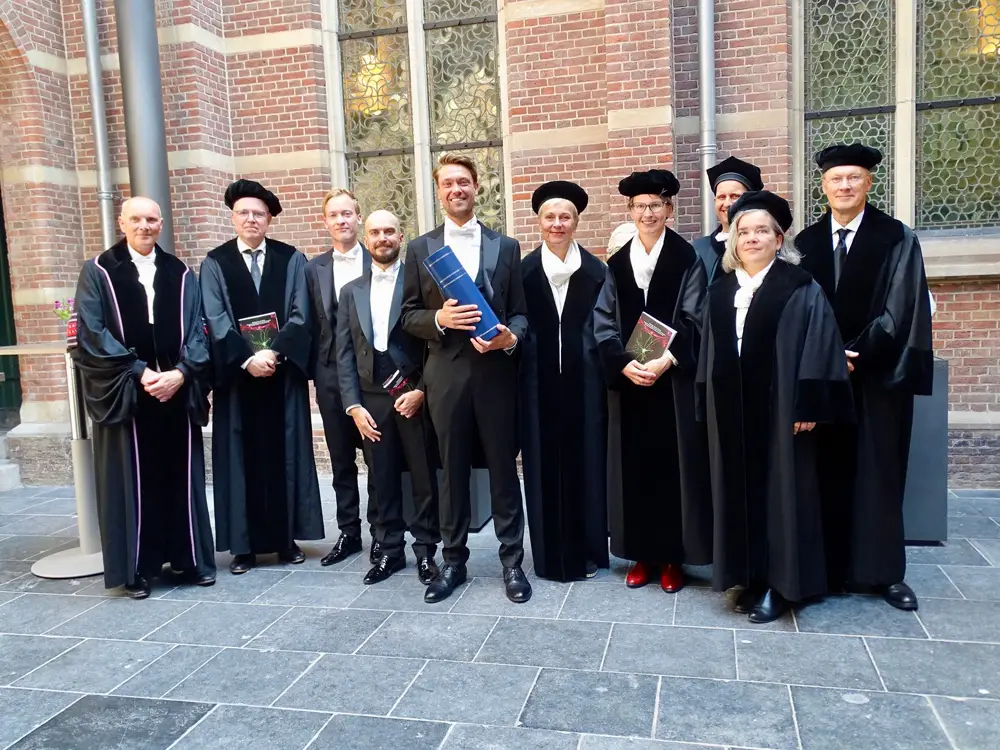On June 26th, Dennis Nahon, successfully defended his PhD thesis titled: ‘Modeling vascular disease using self-assembling human induced pluripotent stem cell derivatives in 3D vessels-on-chip.’
In this thesis he developed novel models to study vascular diseases, to overcome the fact that traditional preclinical models sometimes fail to replicate human physiology accurately. In his research he used Vessels-on-Chip (VoC) models using human induced pluripotent stem cells (hiPSCs) to specifically study neurovascular disorders. His work involved generating hiPSC lines and correcting the disease causing mutations with CRISPR-Cas9 for conditions like cerebral amyloid angiopathy (CAA), RVCL-S, and Hereditary Hemorrhagic Telangiectasia 1 (HHT1). In the detailed study of HHT1 he found no phenotypical differences in traditional 2D assays, while more complex 3D VoC models revealed significant insights, particularly in blood vessel stability and cell-cell interactions. Additionally, he advanced the VoC model to include a brain-specific blood-brain barrier (BBB) by integrating hiPSC-derived astrocytes, enhancing the model’s applicability. This research highlights the potential of stem cells and VoC models for advancing disease modeling and treatment development.

